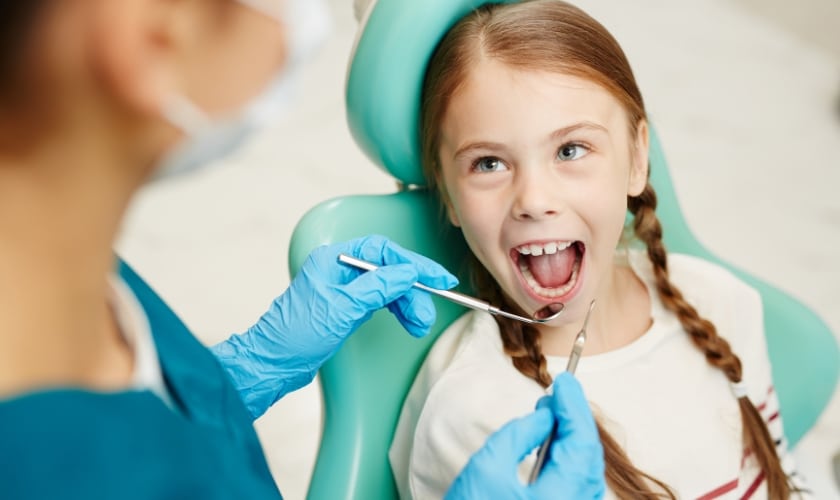
Maintaining good oral health isn’t just about having a bright, white smile. It plays a crucial role in your overall well-being, impacting your digestion, speech, and even self-confidence. As your dental guide, I want to equip you with the knowledge and tools to achieve optimal oral health. Let’s delve into the essential practices and habits that will keep your teeth and gums healthy for years to come. For exceptional dental care in Anthem, trust the expertise of a Professional Dentist in Anthem.
The Pillars of Oral Hygiene:
Brushing
The cornerstone of your oral care routine is brushing twice daily with a fluoride toothpaste. Use a soft-bristled brush and angle it at 45 degrees against your gums and teeth. Gently brush in circular motions for two minutes, covering all surfaces of your teeth, including the back and the chewing surfaces. Remember to brush your tongue too, as it harbors bacteria that can contribute to bad breath.
Flossing
Flossing once a day removes plaque and food particles that accumulate between teeth and along the gumline, where your toothbrush can’t reach. Break off a 18-inch piece of floss, wrap it around your middle fingers, and gently slide it between each tooth, forming a “C” shape around the tooth. Move the floss up and down several times before moving on to the next tooth.
Mouthwash
While not a replacement for brushing and flossing, mouthwash can provide additional benefits. Choose an alcohol-free mouthwash containing fluoride to help strengthen tooth enamel and reduce plaque build-up. Rinse for 30 seconds twice daily after brushing and flossing.
Diet and Hydration
Limit sugary and acidic foods and drinks, as they can erode tooth enamel and contribute to cavities. Drink plenty of water throughout the day to stay hydrated and wash away food particles.
Regular Dental Checkups
Schedule routine dental checkups and cleanings at least once a year, or more often if recommended by your dentist. These visits allow your dentist to identify and address potential problems early on, preventing more serious issues in the future.
Beyond the Basics
Bad Habits
Smoking and excessive alcohol consumption are detrimental to oral health. They increase the risk of gum disease, oral cancer, and other complications. Quitting these habits is crucial for maintaining a healthy mouth.
Dry Mouth
Dry mouth, often caused by medications or certain medical conditions, can lead to increased cavities and gum problems. Consult your dentist for solutions like saliva substitutes or medications that can help alleviate dry mouth.
Special Needs
Individuals with diabetes, pregnant women, and children require specific oral care considerations. Discuss your individual needs with your dentist to ensure you’re receiving the appropriate care.
Additional Tips for a Healthy Smile
Replace your toothbrush every 3-4 months:
Worn-out bristles lose their effectiveness in removing plaque.
Use dental picks or water flossers:
These tools can be helpful for individuals who find traditional flossing difficult.
Clean your tongue scraper regularly:
This helps remove bacteria and maintain fresh breath.
Be mindful of bruxism (teeth grinding):
If you grind your teeth at night, consider wearing a mouthguard to protect your teeth from damage.
Remember, a healthy mouth is a happy mouth! By following these simple yet effective practices, you can maintain optimal oral health and enjoy the benefits of a confident smile for a lifetime.
Bonus: Debunking Common Oral Health Myths:
Myth: Brushing after every meal is necessary.
Fact: While brushing after every meal is ideal, twice daily brushing is sufficient for most individuals.
Myth: Chewing sugar-free gum is bad for your teeth.
Fact: Sugar-free gum can actually be beneficial by stimulating saliva production, which helps wash away food particles and neutralize acids in your mouth.
Myth: Whitening toothpaste can permanently whiten teeth.
Fact: Whitening toothpaste can remove surface stains but cannot significantly change the natural color of your teeth. Professional whitening treatments are necessary for dramatic color changes.
By understanding the importance of oral health and implementing these simple practices, you can empower yourself to maintain a healthy smile and contribute to your overall well-being. Remember, your dentist is your partner in achieving optimal oral health. Don’t hesitate to seek professional guidance and address any concerns you may have


